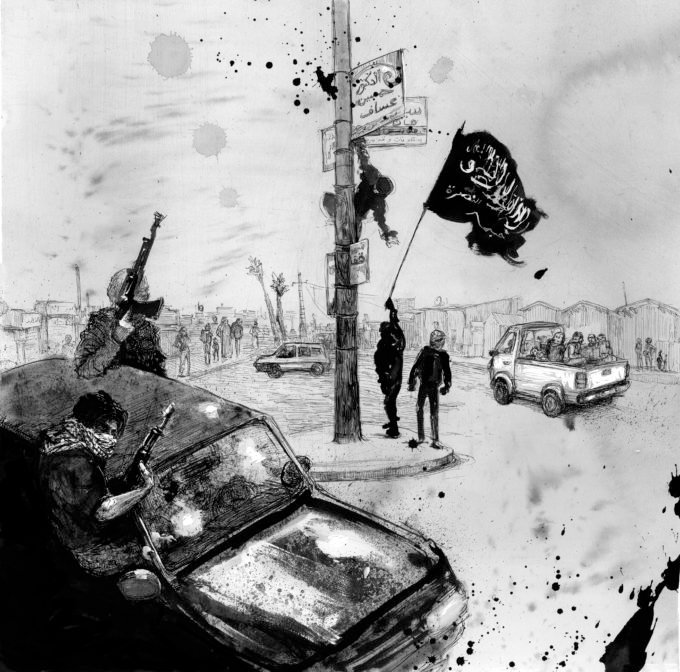
R&K Insider: Illustrating life and war in Syria

This week on Roads & Kingdoms, we spoke with two authors about their new book on Syria and what it was like collaborating when one of them lived in a war zone. Plus, a report from Buenos Aires on why so many women are speaking up about their abortions.
This post originally appeared on July 20, 2018, in R&K’s weekly newsletter. Read the archives and subscribe to the newsletter.
There’s a hallway in the Art Institute of Chicago that I always seek out when visiting home. Dark and slender, it’s lined with simple framed, postcard-sized illustrations. Visitors often walk through quickly, seeking out the larger, prestigious works like Van Gogh or Monet. For me, that hallway holds one of the only reasons worth paying an entrance fee at the museum—Francisco Goya.
Goya’s artwork and etchings of war confront humanity’s brutality head-on. Depicting scenes of famine, mass killings, and violence, the themes of his work apply as much to the world today as to the early 19th-century conflicts on which they’re based.
When flipping through the pages of Marwan Hisham and Molly Crabapple’s new book, Brothers of the Gun, it’s difficult not to be transported to a place and time we are otherwise unable to experience. It makes perfect sense that Molly used Goya’s The Disasters of War as inspiration for her illustrations in the book.
“I feel like Goya’s images get to a deeper truth about war by looking through a surreal lens in a way that photojournalism cannot,” Molly told me when I interviewed her in Brooklyn last month. “They’re not one-to-one things, it’s not a copy of reality.”
The results of her work, much like Goya’s, reveal a war we are otherwise unable to witness. They force us to confront a painful truth about the world, and our place in it.
I hope you take some time to read through our conversation and check out the book. It’s an incredible story, very well told.
Elsewhere on R&K this week, we published this story from Argentina—which next month could become only the third country in Latin America to legalize abortion. Buenos Aires-based journalist Bridget Gleeson reports on how a growing feminist movement that started with protests against gender-based violence led to this historic moment. Read the full story.
And don’t miss this love letter to a breakfast institution in Durham, North Carolina, by Will Atkinson and this pro-tip by Pau Arenós on how to survive a 20-hour Basque breakfast.
See you all next Friday.